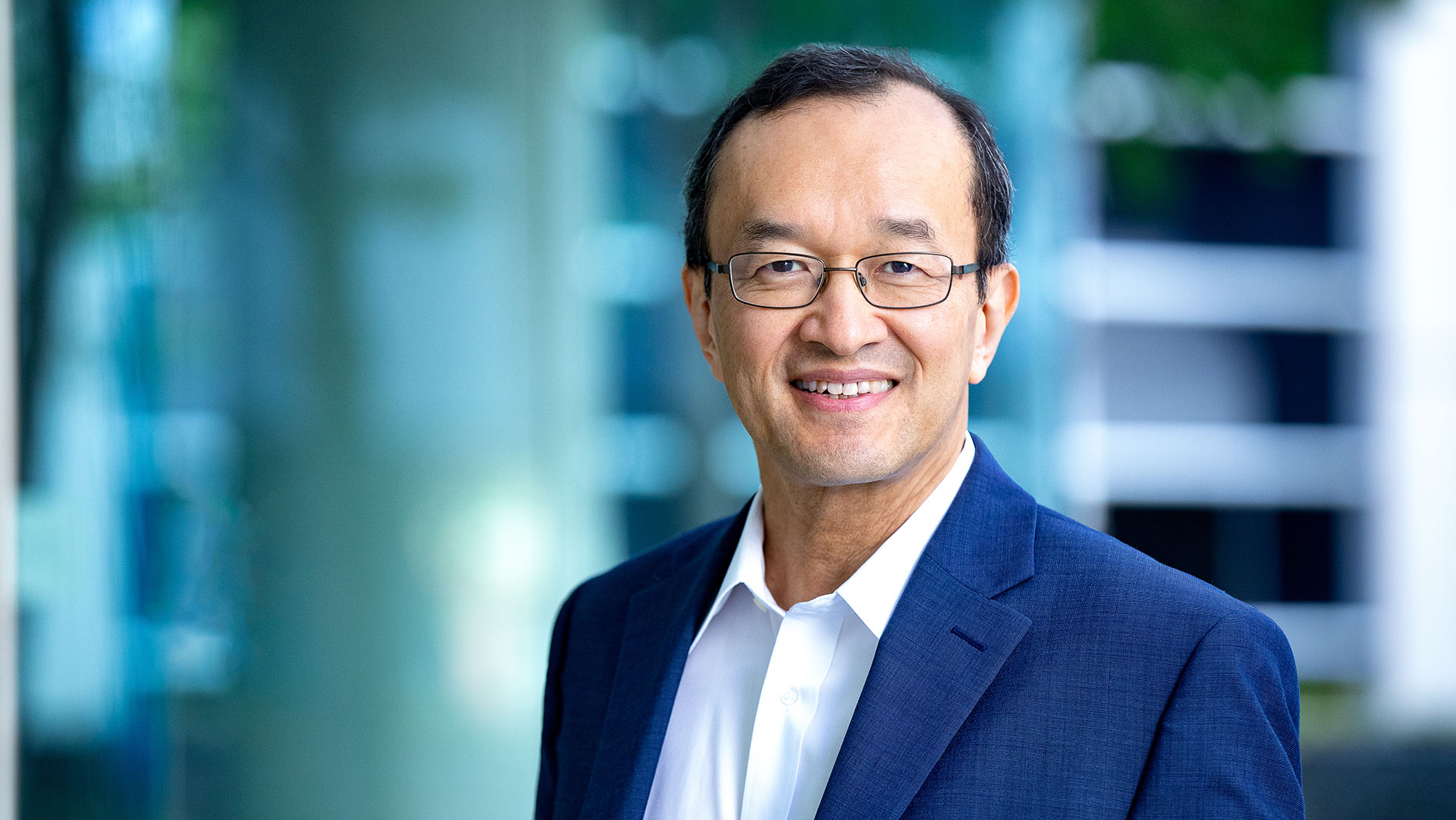Share Article
Ken Takeshita, Senior Vice President and Global Head of Clinical Development at Kite, has worked in oncology for nearly two decades.
For months, Ken, who leads cell therapy clinical development and medical affairs, and his team have been preparing for the annual meeting of the American Society of Clinical Oncology (ASCO), which this year will be held virtually for the first time from May 29 to 31.
We recently caught up with Ken to get his perspective on the first virtual ASCO and Kite’s presence at the meeting.
Q: What are you most looking forward to at this year’s ASCO?
Ken: After numerous years attending ASCO, I still feel the same anticipation and excitement as we near the meeting because of the breakthrough research that’s presented. Even though this year’s meeting will look different due to the global pandemic, progress in cancer research continues, and I am glad we will have this forum to share the latest scientific advances with the broader oncology community.
This meeting will be particularly special for me because it is my first since joining Kite. I was initially drawn to Kite because of the transformative potential of its science. At Kite we’re committed to advancing cell therapy to provide durable, long-lasting remission, and eventually, advancing a cure. A few years ago, I was particularly inspired by results from clinical trials that demonstrated the potential of Kite’s chimeric antigen receptor (CAR) T cell therapy. The results were an inspiring example of what cell therapy can do, and meetings such as ASCO, where we have the chance to present groundbreaking science, are critically important to validating progress.
Q: What data are you most excited about?
Ken: This year’s meeting is unprecedented for Gilead and Kite. Nine abstracts from the companies’ research and development programs were accepted, pointing to our expanding immuno-oncology pipeline. From a Kite perspective, I am proud that seven abstracts from our development program will be shared, and while all of the data are exciting, one oral presentation really stands out to me: an interim analysis evaluating an investigational use of CAR T cell therapy in patients with relapsed or refractory indolent non-Hodgkin lymphoma (iNHL).
There are multiple types of iNHL, and what they have in common is that they are slow-growing but can become more aggressive over time. There is a need for more effective treatment options for patients who have relapsed or have refractory disease.
It’s important to note that not all CAR T cell therapies are alike. The data that will be presented at ASCO on the use of CAR T cell therapy in the treatment of iNHL advance the science in this cancer type, providing hope for the people affected by this cancer and their loved ones. These data also support our belief that CAR T can address a variety of unmet needs across blood cancers and reinforce our commitment to the ongoing advancement of cell therapy technology.
I’m also excited for the data on magrolimab, the lead product candidate from Gilead’s acquisition of Forty Seven, which is being studied in patients with a number of hematological cancers
Q: Many in-person meetings are shifting to a virtual format this year due to COVID-19. How did the shift in format impact how your teams have been preparing for this year’s ASCO?
Ken: The landscape for scientific exchange has rapidly evolved due to the COVID-19 pandemic, and so has our approach to this year’s meeting. Communication and creativity have been key for us. To ensure timely sharing of information, our teams are continually in contact, even though it takes extra effort when we’re all working from different locations. Additionally, we’ve had to think differently about how this research is shared to reach people behind their screens in a way that is effective, rather than in the face-to-face environment of a traditional conference.
I’m impressed with how quickly our teams have pivoted to prepare for a virtual exchange of information, and I’m confident that the impact of our research will resonate within the community.
Q: You’ve been at Kite for almost six months now after many years working to advance cancer treatments at other biotech companies. What have you noticed that differentiates the company’s approach to oncology?
Ken: Gilead and Kite are focused on building transformative immuno-oncology therapies. At Kite, we are very proud to advance cell therapies with curative intent; this is one of the reasons I was so excited to join the company. While we focus exclusively on cell therapies, our colleagues at Gilead are focused on other types of cancer immunotherapies. This work is highly complementary toward our shared objective of building a pipeline of next-generation treatments designed to fundamentally change the way we treat cancer. It’s a bold vision, and it’s one we’re committed to achieving together.

